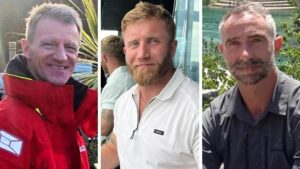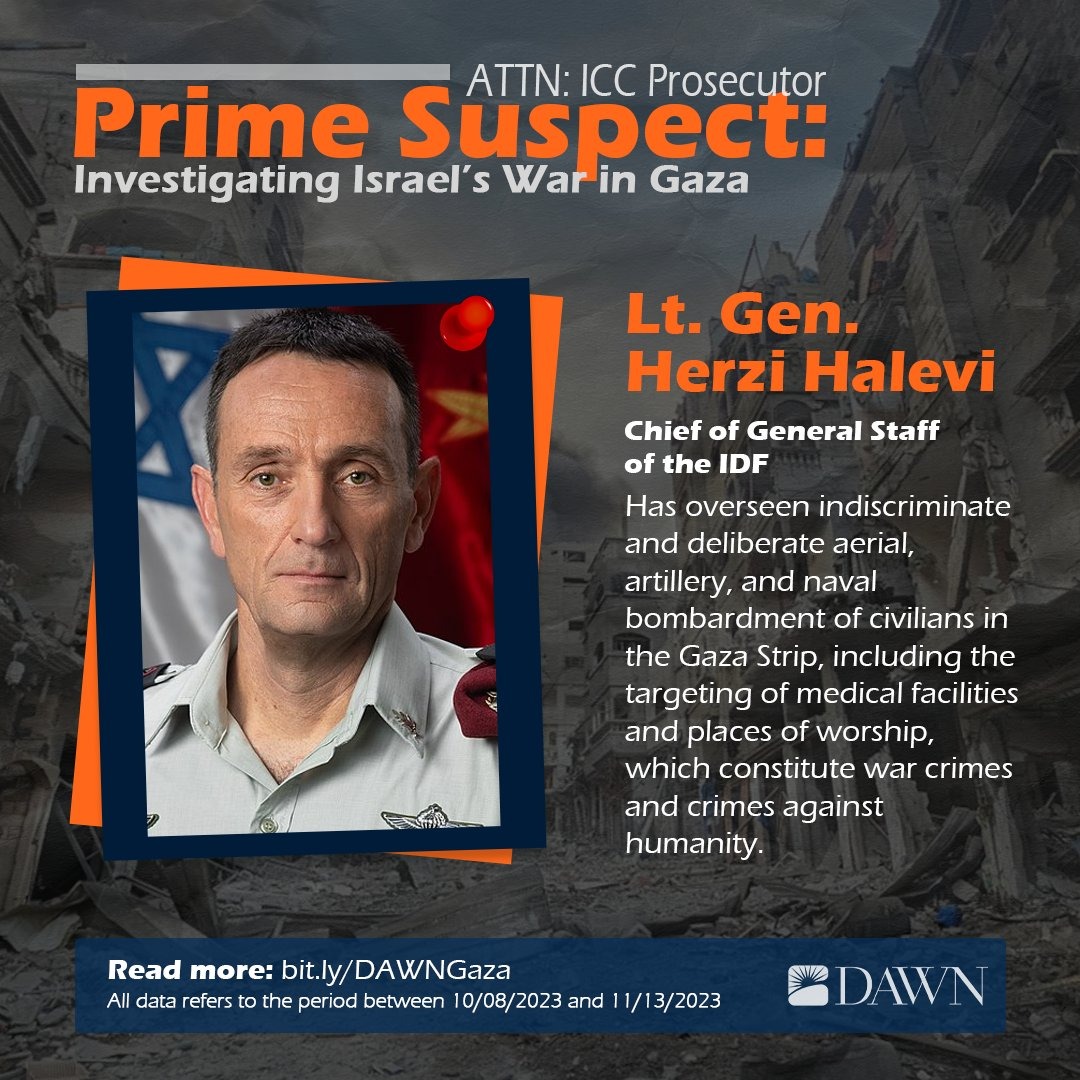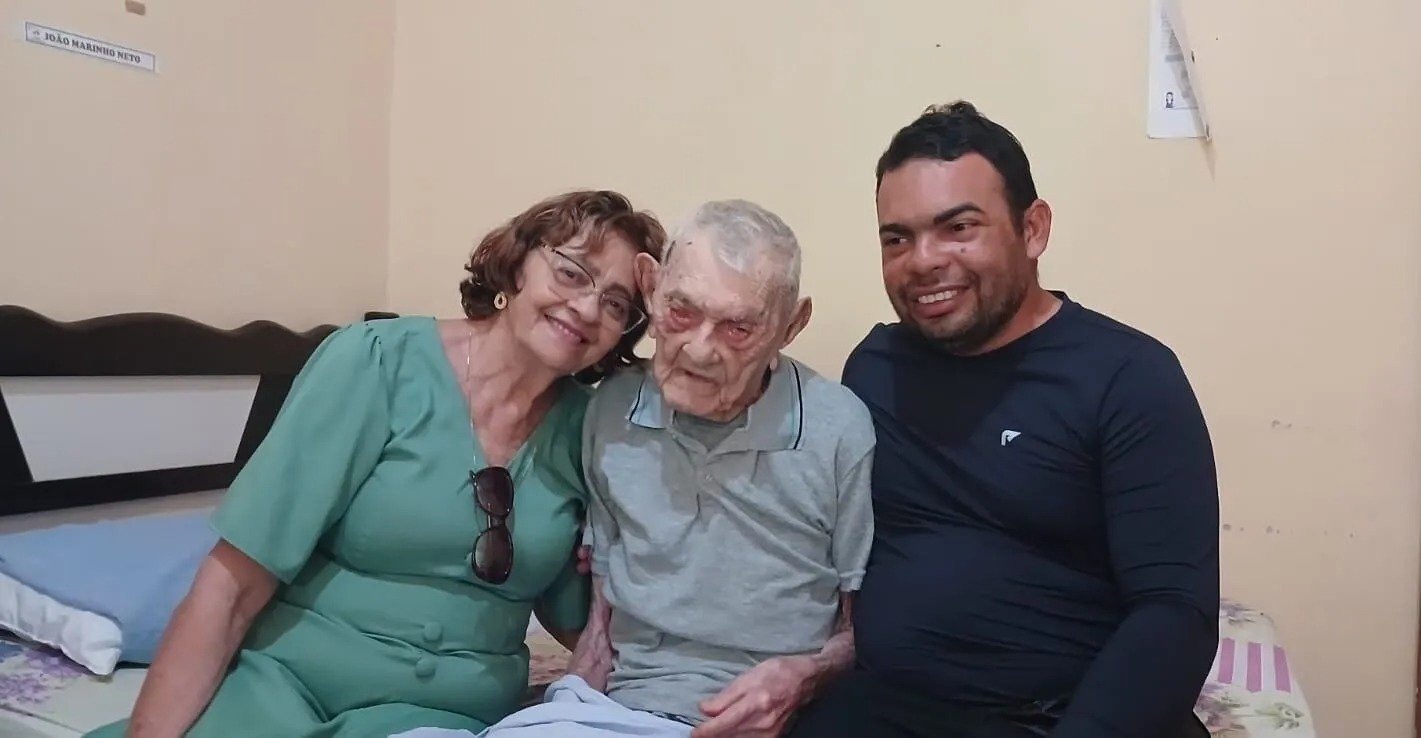Israeli media outlet Israel Hayom has reported that the Chief of Staff of the Israeli occupation forces (IDF), Lt. Gen. Herzi Halevi, visited the United Kingdom on Monday.
Halevi’s visit came just days after the International Criminal Court (ICC) issued arrest warrants for Israeli Prime Minister Benjamin Netanyahu and former Defense Minister Yoav Gallant, citing their roles in the Gaza genocide.
According to the report, Halevi attended a Chiefs of Staff conference in Britain, where he briefed his counterparts from various nations and provided an overview of the current situation in the Middle East. Notably, the visit was described as “unusual,” given the ongoing war and the sensitive timing of the ICC’s groundbreaking decision.
Aid Workers Killed
Halevi acknowledged an Israeli airstrike on his watch resulting in the deaths of seven aid workers in Gaza in April 2024, including James Henderson: British national, former Royal Marine, working as a private security contractor with Solace Global; John Antony Chapman: a British national, former Royal Marine, also a private security contractor with Solace Global and James Kirby: a British national, former soldier with tours in Bosnia and Afghanistan, serving as a private security contractor with Solace Global.
Halevi described the targetted and co-ordinated attack that killed the Brits as well as four other aid workers in Gaza, including Australian national Zomi Frankcom, as a ‘mistake’ after there was international uproar over the continued targetting of aid workers, medics and journalists who have been killed in their hundreds, by Israel.
The IDF attributed the incident to “misidentification” even though all of the vehicles that were hit in multiple drone strikes were marked ‘World Central Kitchen’ (WCK), and their route had been pre-cleared with the IDF, before setting off.
WCK suspended its work in Gaza after the airstrike. An IDF military commission found that the strike on the WCK convoy was a war crime. Two junior officers were dismissed and three were reprimanded.
The independent news site Declassified later reported that the UK military is withholding video footage shot by one of its RAF spy planes, operating out of Cyprus, on the day of the aid worker massacre in Gaza.
The UK has since claimed the footage and communications gathered by the plane that day are exempt from disclosure for security reasons.

Who is Lt. Gen. Herzi Halevi?
Lt. Gen. Herzi Halevi, born on December 17, 1967, in Jerusalem, has had a distinguished military career. He was named after his uncle, a paratrooper who was killed during the Six-Day War. Halevi’s father’s family immigrated from Russia, while his mother’s family has resided in Jerusalem for 14 generations. He studied at Himmelfarb religious high school and was a member of the Tzofim religious scouts.
Drafted into the IDF in 1985, Halevi volunteered as a paratrooper and served as a squad leader. In 1987, he became a platoon leader and led the Paratroopers Brigade’s anti-tank company in counter-guerrilla operations in South Lebanon. He later commanded the elite Sayeret Matkal unit during the Second Intifada. Throughout his career, Halevi has held several key positions, including commander of the 35th Paratroopers Brigade, chief of the Military Intelligence Directorate, and head of the Southern Command.
In January 2023, Halevi was appointed as the 23rd Chief of the General Staff of the IDF, succeeding Aviv Kohavi. His tenure has been marked by various challenges, including heightened tensions in the region and the recent ICC arrest warrants against Israeli leaders.
Allegations of War Crimes
Lt. Gen. Halevi has faced allegations of war crimes, particularly in connection with the IDF’s operations in Gaza. In January 2024, a criminal complaint was filed in Norway accusing Israeli officials, including Halevi, of genocide and crimes against humanity against Norwegian nationals in Gaza.
Furthermore, the ICC has been investigating alleged war crimes committed by both Hamas and the IDF during the Israel–Hamas conflict. Reports indicate that the ICC is considering issuing arrest warrants against Israeli officials, including Halevi, for their roles in the conflict. These developments have intensified international scrutiny of Halevi’s actions and have raised questions about accountability and justice in the context of the Israel–Palestine conflict.
Additional Context on the Visit
According to further reports, Lt. Gen. Halevi’s visit to the UK lasted only a few hours. He reportedly flew in during the afternoon and returned to Israel shortly after midnight. This quick turnaround has raised questions about the strategic importance and objectives of the visit.
While Halevi’s engagement was officially framed as a routine military conference, the timing has fueled speculation about its true purpose. The visit coincided with ongoing discussions regarding the ‘ceasefire’ between Israel and Hezbollah. Observers have noted the trip’s unusual nature, particularly during a time of heightened international scrutiny and conflict.
Arrest Warrants Spark Global Attention
The ICC’s arrest warrants for Netanyahu and Gallant have sent shockwaves through political and military circles. While critics have long accused the ICC of disproportionately targeting nations in the Global South, this decision marks a bold move against leaders in the Global North, raising fears that Western nations may also face accountability for their actions.
In the UK, public sentiment overwhelmingly supports the ICC’s decision. A recent poll revealed that a significant majority of Britons want their government to respect the ICC’s rulings. However, pro-Israel lobbyists and government officials have scrambled to downplay the implications of the warrants, showcasing their discomfort with the ICC’s newfound assertiveness.
Voices of Criticism and Support
The ICC’s decision has reignited debates about international justice. Critics argue that Western governments—who often champion the rule of law—are quick to dismiss ICC rulings when it comes to their allies. Academic Alonso Gurmendi highlighted the hypocrisy of these criticisms, pointing out the absurdity of Western nations’ selective support for international law.
Meanwhile, pro-Israel propagandists have struggled to navigate the fallout. As the ICC’s warrants loom large, public discourse in the UK and beyond continues to shift toward demanding accountability for alleged war crimes.
The Israeli War Criminal the UK Let Go: A Tale of Escaped Justice
In September 2005, retired Israeli Major General Doron Almog became the focus of international controversy when he narrowly avoided arrest at London’s Heathrow Airport. A British court had issued a warrant for Almog’s arrest, accusing him of war crimes under the Geneva Conventions for ordering the demolition of 59 Palestinian homes in Gaza in 2002. The incident revealed a clash between justice and diplomacy, underscoring the complexities of enforcing international law.

A Missed Opportunity for Justice
Almog, the commanding officer of the Israeli Defense Forces’ Southern Command from 2000 to 2003, landed at Heathrow on an El Al flight, intending to attend a speaking engagement. British police waited at the immigration desk to arrest him. However, Almog never disembarked. Israeli diplomats had tipped him off mid-flight, and upon landing, Israel’s military attaché boarded the plane to warn Almog to remain on board. For two tense hours, he stayed on the aircraft before it departed back to Israel.
Documents from Scotland Yard later revealed why British authorities allowed Almog to evade capture. Counter-terrorism police feared a potential armed confrontation with the plane’s armed security personnel, including air marshals. Detective Superintendent John MacBryane, who led the operation, cited concerns over public safety and uncertainty about the legal right to board the plane without El Al’s consent.
Despite arguments that police could have legally boarded the plane or prevented it from taking off, the operation was abandoned. Critics, including British lawyers acting on behalf of Palestinian victims, claimed the police had made critical errors in handling the situation.
A Precedent-Setting Case
The arrest warrant for Almog was a landmark moment. Issued by Senior District Judge Timothy Workman, it marked the first time a UK court had authorized the arrest of an Israeli national for alleged war crimes. The warrant was obtained under the principle of universal jurisdiction, which allows British courts to prosecute grave crimes like war crimes, even if they occurred abroad.
However, the case also exposed the fragility of such legal mechanisms when faced with diplomatic sensitivities. Almog’s case was not an isolated incident; in 2009, a similar warrant was issued for Tzipi Livni, Israel’s former Foreign Minister, prompting the UK to amend its universal jurisdiction laws in 2011. The reforms required the Director of Public Prosecutions’ approval for such warrants, making it more difficult to pursue politically sensitive cases.
The Fallout
The incident sparked debates over the UK’s legal and diplomatic priorities. While Almog maintained his innocence, asserting that his actions were aimed at preventing terrorist attacks and saving lives, Palestinian human rights organizations criticized the UK’s failure to act. Raji Sourani, director of the Palestinian Centre for Human Rights, condemned the inaction, stating, “Failure to respect the rule of law and to pursue those responsible for attacking civilians undermines international law.”




